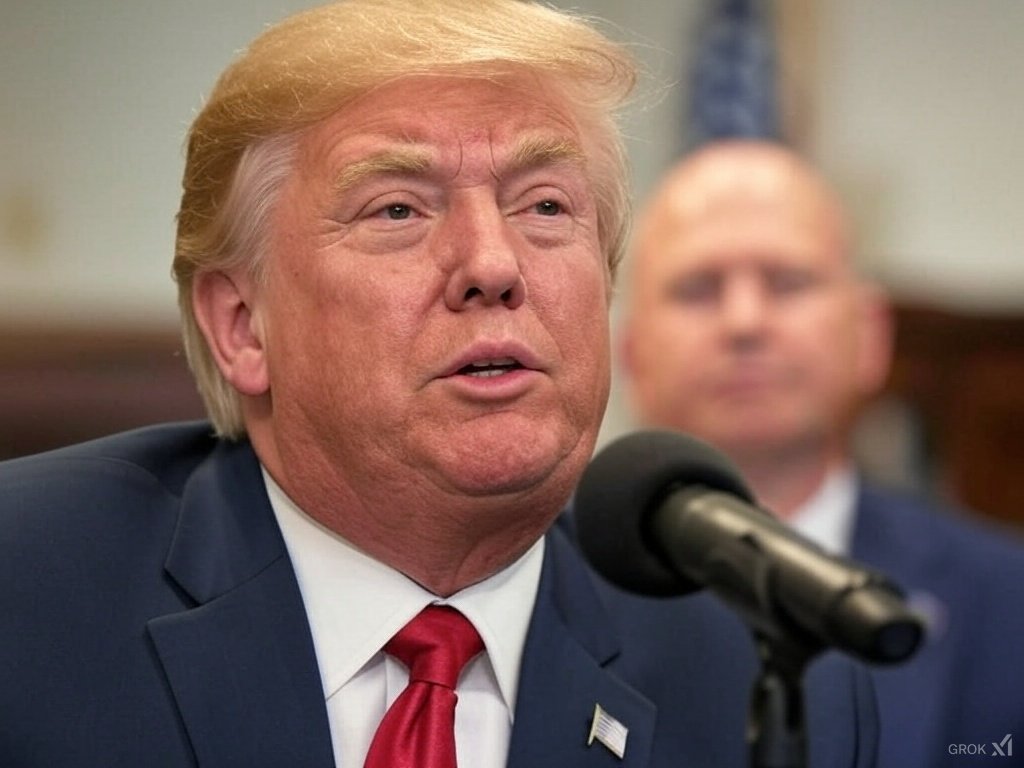On February 21, 2025, a dramatic showdown unfolded at the White House, pitting Maine’s Democratic Governor Janet Mills against President Donald Trump in a heated exchange over transgender rights. The clash, which culminated in Mills’ defiant declaration, “We’ll see you in court,” has ignited a firestorm of debate about federal authority, state autonomy, and the rights of transgender athletes. Here’s a deep dive into what happened, why it matters, and what’s at stake as this battle heads toward the courtroom.
The Sparks Fly at the White House
The confrontation occurred during a meeting of the National Governors Association, a typically bipartisan gathering where state leaders discuss policy with federal officials. About an hour into his remarks, Trump turned his attention to an executive order he signed earlier in February, titled “Keeping Men Out of Women’s Sports.” The order aims to bar transgender women and girls from competing in female sports categories by redefining Title IX—the federal law prohibiting sex discrimination in education—to align with the administration’s view that “sex” refers solely to one’s gender assigned at birth.
Spotting Governor Mills in the room, Trump zeroed in on Maine, a state that has steadfastly refused to comply with the directive. “Is Maine here, the governor of Maine?” he asked, before pressing Mills directly: “Are you not going to comply with it?” Mills stood her ground, responding, “I’m complying with state and federal laws.” Trump shot back, “We are the federal law,” and threatened to withhold federal funding from Maine unless it fell in line. “You better comply, because otherwise you’re not getting any federal funding,” he warned.
Unfazed, Mills delivered the now-viral retort: “We’ll see you in court.” Trump, seemingly relishing the challenge, replied, “Good, I’ll see you in court. I look forward to that. That should be a real easy one,” before adding a parting shot: “Enjoy your life after governor, because I don’t think you’ll be in elected politics.”
The exchange was a rare breach of the courteous tone usually maintained at such events, laying bare the deep political and ideological rift between the Trump administration and states like Maine that prioritize their own laws and values.

The Roots of the Conflict
This clash didn’t come out of nowhere. Trump’s executive order, signed on February 5, 2025, builds on a campaign promise to “restore fairness” in women’s sports—an issue he frequently highlighted on the trail. The directive instructs federal agencies, including the Department of Education, to enforce compliance by threatening to cut funding to schools and programs that allow transgender girls to compete on teams consistent with their gender identity. It’s part of a broader suite of executive actions targeting transgender Americans, including limits on gender transition care and military service policies.
Maine, however, has its own playbook. The Maine Principals’ Association, which oversees high school sports, announced earlier this month that it would continue to permit transgender female athletes to participate, citing the Maine Human Rights Act. This state law, amended in 2021 to include gender identity as a protected class, prohibits discrimination on that basis. For Maine officials, the choice is clear: state law trumps Trump’s order.
The day before the White House showdown, Trump had already singled out Maine during a speech to the Republican Governors Association, claiming, “I heard men are still playing in Maine,” and vowing to pull federal funds until the state “cleans that up.” Mills and Maine Attorney General Aaron Frey responded swiftly with statements vowing resistance. “The state of Maine will not be intimidated by the President’s threats,” Mills declared, while Frey called any attempt to cut funding “illegal and in direct violation of federal court orders.”
What’s at Stake?
The stakes couldn’t be higher. For Trump, this is a test of his administration’s ability to flex federal muscle and enforce a conservative agenda on states that lean left. His supporters argue the order protects female athletes by ensuring a level playing field, pointing to public opinion polls—like one from The New York Times and Ipsos showing only 18% of Americans support transgender women competing in women’s sports.
For Maine, it’s about more than sports—it’s about sovereignty and civil rights. Mills has framed the issue as a defense of the rule of law, warning that Trump’s tactics amount to “an unconstitutional act of coercion.” If the federal government follows through on its threat, Maine’s schools could lose millions in funding, impacting everything from classroom resources to extracurricular programs. Beyond the dollars, the state sees this as a fight to protect a tiny but vulnerable population: transgender students. According to the Maine Principals’ Association, only 56 transgender students sought to participate in high school sports between 2013 and 2021, with just four being transgender girls.
The U.S. Department of Education has already upped the ante, announcing on February 21 that its Office of Civil Rights is launching an investigation into the Maine Department of Education. The probe targets allegations that the state permite “male athletes” to compete in girls’ sports and denies “female-only intimate facilities,” potentially violating Title IX. Maine officials, however, see this as a politically motivated move, with Mills predicting an “all but predetermined” outcome.
The Road to Court
Mills’ “see you in court” wasn’t just bravado—it’s a promise backed by legal precedent and a growing wave of resistance. Maine isn’t alone in challenging Trump’s order. In New Hampshire, two transgender high school students, Parker Tirrell and Iris Turmelle, filed a lawsuit earlier this month, arguing the ban violates their equal protection rights under the Fifth Amendment and Title IX. Legal experts suggest Maine could join or file a similar suit, contending that the federal government can’t arbitrarily withhold funds to punish states for following their own anti-discrimination laws.
The courts have historically frowned on such federal overreach. U.S. Representative Chellie Pingree of Maine pointed out that “the courts have repeatedly ruled that the federal government cannot withhold funding arbitrarily or use it as leverage to undermine established civil rights protections.” The Supreme Court’s 2012 ruling on the Affordable Care Act, which struck down a provision threatening states with the loss of Medicaid funds, could serve as a key precedent.
Still, Trump appears confident, calling the case “a real easy one.” His administration may lean on a strict interpretation of Title IX, arguing that “sex” has always meant biological sex at birth—a view that’s gained traction in some conservative judicial circles. The outcome could hinge on how courts balance federal authority with state rights, and whether they see the order as discriminatory or a legitimate protection of women’s sports.
Beyond the Legal Battle
This showdown is about more than funding or athletics—it’s a microcosm of America’s culture wars. Trump’s order has drawn praise from those who see it as a stand against “woke ideology,” while critics, including LGBTQ+ advocates like the Human Rights Campaign, call it a solution in search of a problem. They note that transgender participation in sports has been a “non-issue” in many states, with policies successfully balancing inclusion and fairness for years.
For Governor Mills, the fight is personal and political. With her second term ending in 2027, she’s cementing a legacy as a defender of Maine’s progressive values. Her defiance at the White House, witnessed by governors like Hawaii’s Josh Green—who called it “a little harsh but unnecessary conflict”—signals that some Democratic leaders are ready to push back against Trump’s agenda, even at the risk of federal retaliation.
As this clash heads to court, the nation watches. Will Maine’s resistance hold? Can Trump bend states to his will? And what does this mean for transgender youth caught in the crossfire? One thing’s certain: the words “see you in court” have set the stage for a legal and cultural reckoning that could shape policy—and lives—for years to come.













Leave feedback about this